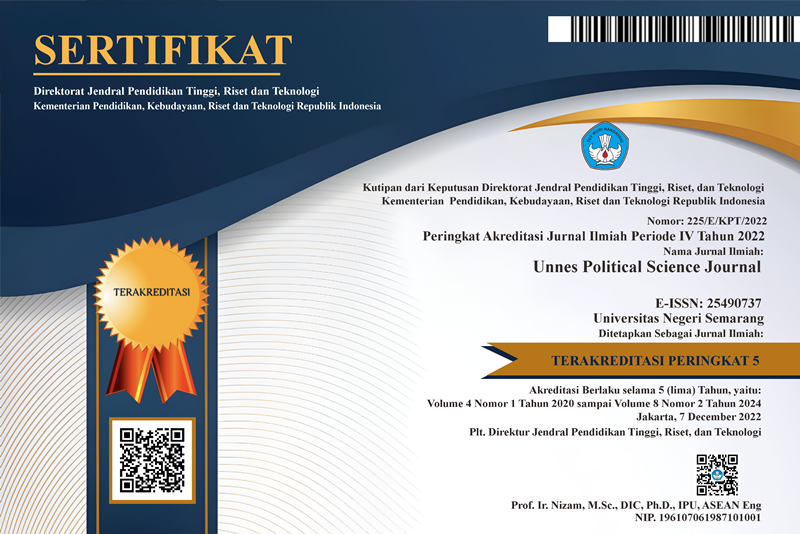Transforming Citizenship Education in the Digital Era: Challenges and Opportunities for the Indonesian Millennial Generation
DOI:
https://doi.org/10.15294/upsj.v8i1.9256Keywords:
digital era, millennial generation, national identity, political participation, citizenship educationAbstract
Citizenship education is an important pillar in the formation of national identity and active participation in democratic life. However, rapid changes in technology and the emergence of the digital era including Artificial Intelligence (AI) have significantly changed the landscape of education, including civic education. This article explores the impact of the transformation of civic education in the digital era on Indonesia's millennial generation. It analyzes the challenges and opportunities faced in integrating digital technologies including AI into civic learning. The main challenge faced is the adjustment of curriculum and teaching methods. Millennials grow up in an environment flooded by digital information, which requires educators to find ways to link civic values with complex digital realities. Digital transformation also brings new opportunities in civic education. Artificial Intelligence technologies allow educators to create more engaging and interactive learning experiences, enable discussions across geographical boundaries, and facilitate active participation in social and political issues. In the context of Indonesia's millennial generation, this article outlines strategies that can be used to overcome the challenges and capitalize on the opportunities of AI transformation in Civic Education in the digital era. This research uses a mixed methods research design to explore the impact of the transformation of civic education in the digital era on Indonesian millennials and analyze the challenges and opportunities that arise. Data were obtained through literature studies, interviews, and surveys.
